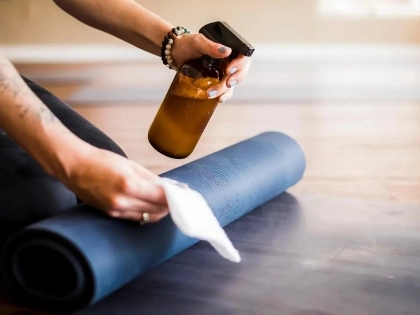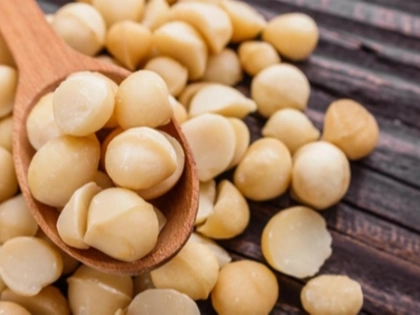Adding Honey to Your Skincare Regimen
Because of its calming, antimicrobial, and moisturising qualities, honey—known as shahad in Persian—has been a staple in cosmetics and skincare products for generations. Additionally, it is a naturally occurring humectant that draws and holds moisture to dry skin. Because unfiltered honey's pH level is so similar to the skin's, it works well to clear pores. Moreover, it functions as a mild exfoliant.
Unprocessed Honey
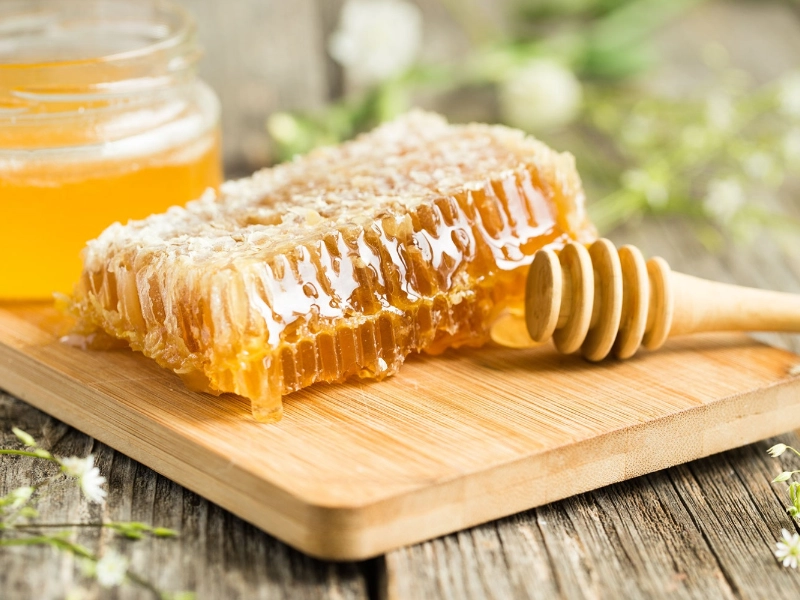
Manuka Honey
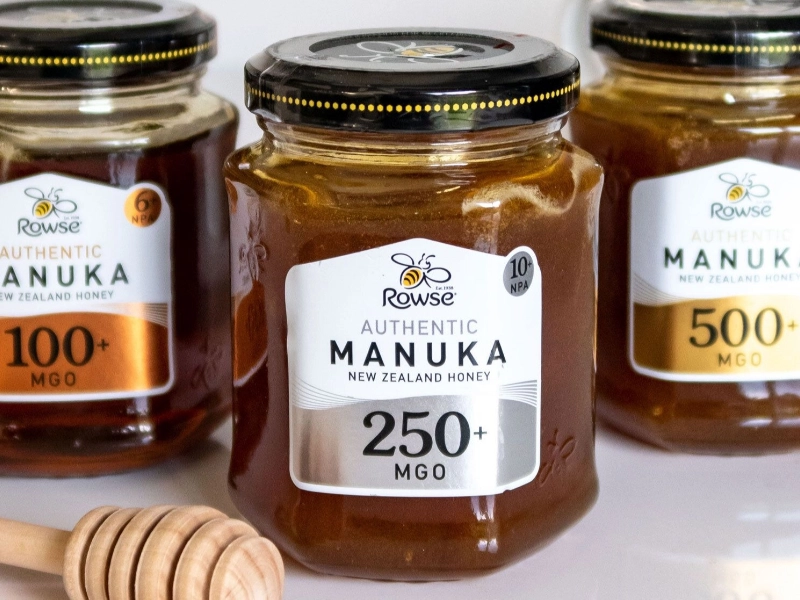 Regular usage of honey, a natural antibacterial and anti-inflammatory, can help to reduce redness, relieve irritation, clear up acne, and soften wrinkles and fine lines. Manuka honey is a specific kind of honey that is frequently used to treat atopic dermatitis (eczema). Studies have revealed that manuka honey has even more therapeutic properties than other varieties of honey. Check your honey for a UMF or MGO rating to be sure you're getting a premium, unadulterated manuka.
It has also been demonstrated that this particular type of honey can treat stomach ulcers and stop the growth of germs like Helicobacter pylori that are linked to these diseases. Additionally, it may be useful in lessening dental decay and other oral illnesses like bleeding gums. However, you don't have to cover yourself in raw manuka honey because manuka is an ingredient in several high-end skincare products. Just remember to speak with a dermatologist before beginning a new routine and be sure to spot test any new product on your skin.
Regular usage of honey, a natural antibacterial and anti-inflammatory, can help to reduce redness, relieve irritation, clear up acne, and soften wrinkles and fine lines. Manuka honey is a specific kind of honey that is frequently used to treat atopic dermatitis (eczema). Studies have revealed that manuka honey has even more therapeutic properties than other varieties of honey. Check your honey for a UMF or MGO rating to be sure you're getting a premium, unadulterated manuka.
It has also been demonstrated that this particular type of honey can treat stomach ulcers and stop the growth of germs like Helicobacter pylori that are linked to these diseases. Additionally, it may be useful in lessening dental decay and other oral illnesses like bleeding gums. However, you don't have to cover yourself in raw manuka honey because manuka is an ingredient in several high-end skincare products. Just remember to speak with a dermatologist before beginning a new routine and be sure to spot test any new product on your skin.
Blending It With Additional Ingredients
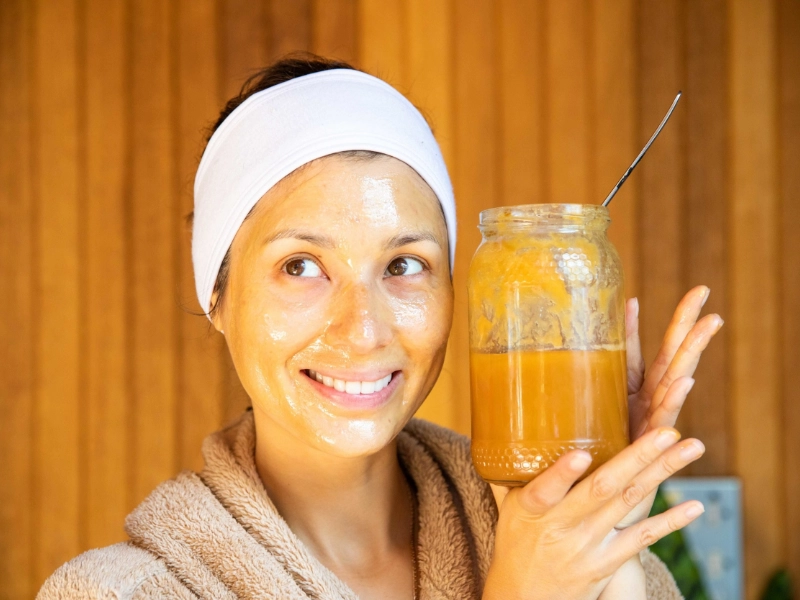 As a potent natural ingredient for skincare, physicians have recognised honey as safe for your face, in contrast to other pantry staples that could be more harmful than beneficial. Its many beneficial qualities for all skin types include deep hydration, healing, and the promotion of skin cell renewal.
It can be applied as a mild exfoliator to help remove dead skin cells and reveal skin that is younger-looking and more radiant. Moreover, it can be applied as a spot treatment to fade scars and clean up acne.
Honey unclogs pores and contains potent antibacterial properties that help prevent breakouts of acne in those with oily skin. Its antioxidant qualities guard against free radical damage, which causes oxidative stress and ageing, while its humectant qualities aid in preserving moisture balance. A tablespoon of honey can be added to your preferred face mask to make it an even more healthy treat.
As a potent natural ingredient for skincare, physicians have recognised honey as safe for your face, in contrast to other pantry staples that could be more harmful than beneficial. Its many beneficial qualities for all skin types include deep hydration, healing, and the promotion of skin cell renewal.
It can be applied as a mild exfoliator to help remove dead skin cells and reveal skin that is younger-looking and more radiant. Moreover, it can be applied as a spot treatment to fade scars and clean up acne.
Honey unclogs pores and contains potent antibacterial properties that help prevent breakouts of acne in those with oily skin. Its antioxidant qualities guard against free radical damage, which causes oxidative stress and ageing, while its humectant qualities aid in preserving moisture balance. A tablespoon of honey can be added to your preferred face mask to make it an even more healthy treat.
Testing patches
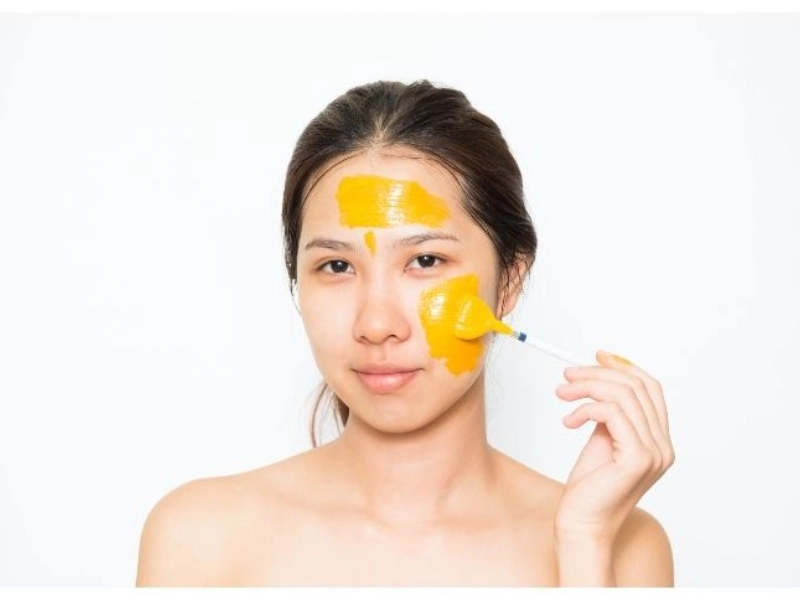 Since honey is a naturally occurring humectant, it draws moisture to the skin and holds it there. This may lessen itching and dryness. It can also aid in the removal of imperfections and congested pores due to its antimicrobial qualities. Furthermore, honey has antioxidants in it that help combat free radicals and lessen the visibility of wrinkles and fine lines.
Try using unfiltered honey in your skincare routine if you're searching for an all-natural ingredient. It can be used alone as a mild cleanser and natural exfoliator or combined with other substances, like baking soda, to make a face mask. But be cautious to patch test it first before applying honey all over your face. Patch testing is used to determine whether a component causes contact dermatitis or other allergic reactions. It's crucial to do this before utilising any new products because it may take a few days for it to show up.
Since honey is a naturally occurring humectant, it draws moisture to the skin and holds it there. This may lessen itching and dryness. It can also aid in the removal of imperfections and congested pores due to its antimicrobial qualities. Furthermore, honey has antioxidants in it that help combat free radicals and lessen the visibility of wrinkles and fine lines.
Try using unfiltered honey in your skincare routine if you're searching for an all-natural ingredient. It can be used alone as a mild cleanser and natural exfoliator or combined with other substances, like baking soda, to make a face mask. But be cautious to patch test it first before applying honey all over your face. Patch testing is used to determine whether a component causes contact dermatitis or other allergic reactions. It's crucial to do this before utilising any new products because it may take a few days for it to show up.


